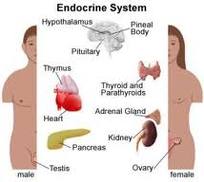
We all throw the word"fat" around as if we really know what it is. If I were to stand at the mall and take a survey, I'd likely get the following answers to the question,"What is fat?"
"Gross"
"Something I have too much of."
"Saturated and unsaturated."
"Something that unfortunately makes food taste good."
Have you ever thought about why we even make and store fat in the first place? Just a few decades ago, nutrition students like me were taught that the primary source of fat was as a storage tissue for excessive calories eaten. Oh! And it helps to insulate you and keep you warm. That was that.
That paradigm is what the vast majority of nutrition advice is based on…that fat is an inactive mass that has little value, really, so when we have too much of it we should do whatever it takes to get rid of it. Diet. Exercise. Liposuction. Bariatric surgery.
In recent years, scientists have been studying fat and learning some really interesting things. Fat is actually an endocrine organ! Just like the pancreas and the liver, our fat tissue manufactures and secretes hormones and chemicals of communication that are used by other parts of the body in other locations. Fat tissue can make estrogen, and it can also even make cortisol! Other hormones that fat tissue can make include leptin, resistin, and adiponectin.
The fact that fat has functions suggests that we should be much more respectful of its existence. Apparently it is created when we need what it does. Simply removing it, without figuring out what conditions triggered it to appear in the first place, is likely why drastic, imbalanced methods of reducing fat don't have long-term success.
I read long ago that insulin has a mild-antidepressant activity. It occurred to me, that when a person is not living their life in balance, and the nervous system is having a hard time doing its job, that we may have been programmed to have back up plans to ensure our survival. Such as not allowing insulin to be used by muscle and fat, rather rendered available to be used by the brain to keep doing what it does. After all, if our brains aren't working, we aren't working…right?
So instead of thinking we are depressed because we are fat…maybe we should consider that we are fat becasue we are depressed.
The type of fat that is found in our abdomens is commonly written about as dangerous to have. Yes, it is associated with a lot of expensive and deadly illnesses. However, it is also where a lot of omega-3 fatty acids are stored. So if we're eating the kind of fat that overpowers the ability of the body to do its job, and not eating enough omega-3 fatty acids in the first place, it's actually pretty amazing, if you think about it, that our bodies have a way to make sure that despite these somewhat self-destructive choices, the fats our brains desperately need, stay in the body and get to where they are most needed?
I stopped thinking of fat as a bad thing a long time ago. When I see someone whose adipose organ is overdeveloped, it makes me stop and think about how far out of balance they must be. If you exercise and train and work your muscles routinely over time, they become big and strong, right? If your life is imbalanced, your fat tissue will be worked out in similar fashion. If you don't need the fat, it is not likely to stick around.
When I see someone with an overdeveloped fat organ, my very first thought is,"That body is having to work sooo hard to stay in balance. That must be an exhausting job."
When you are diligent with self-care, that is you make food choices that promote better balance, you move your body regularly, you don't take on unnecessary stress, and you practice good sleep hygiene, your body won't have to be so dependent on its fat tissue to do all that work. The responsibility is better divided between other body parts.
It's a bit of a shift to wrap your brain around, I know…but I encourage you to think about it. The very fact that you're able to make fat may have been lifesaving, up to this point. But since extra fat was more designed as a backup plan, and not the primary way to stay in balance, perhaps you can think of your choices from this point forward as ways to give that organ a break and not wear it out…not wear YOU out…before your time.
http://www.ncbi.nlm.nih.gov/pubmed/15195692